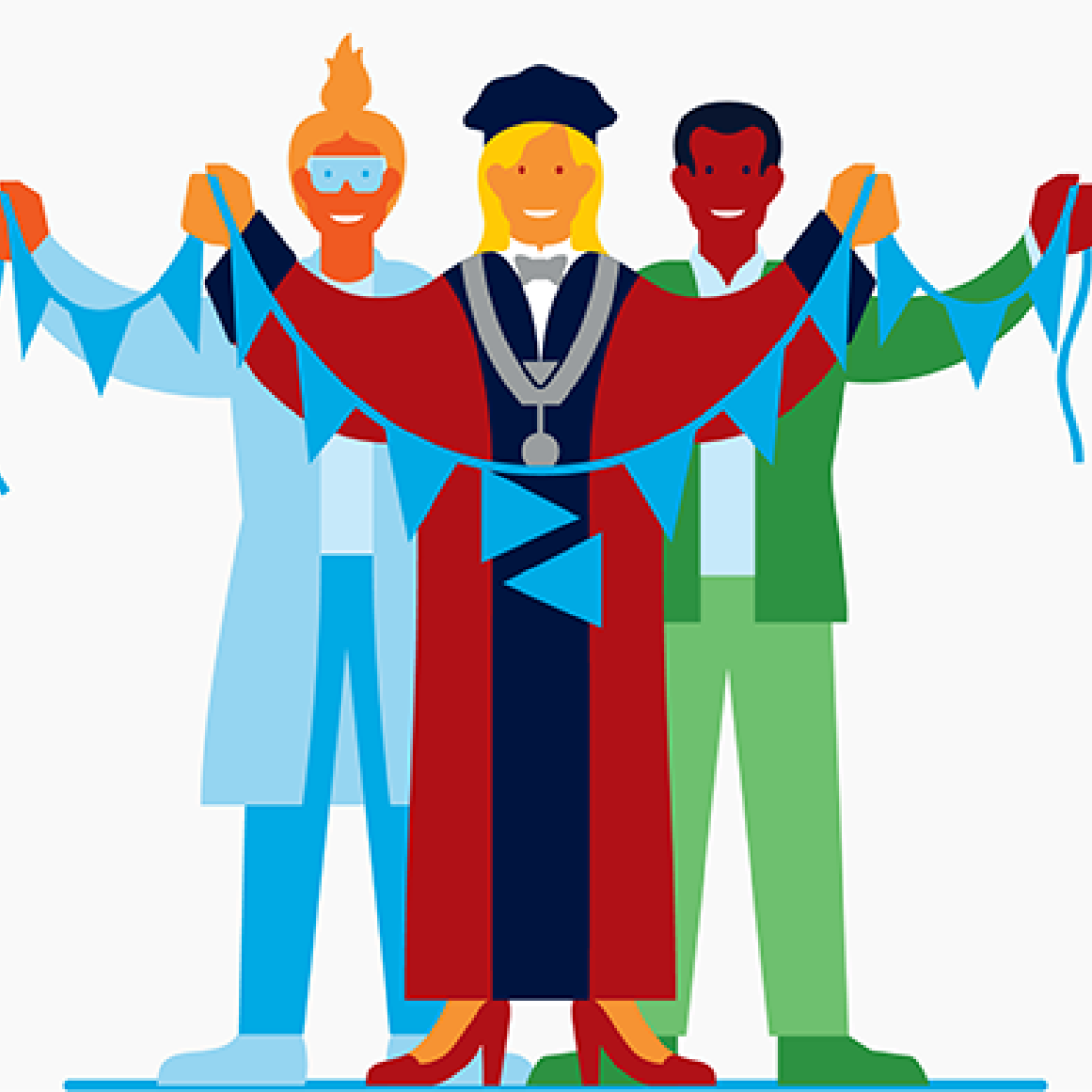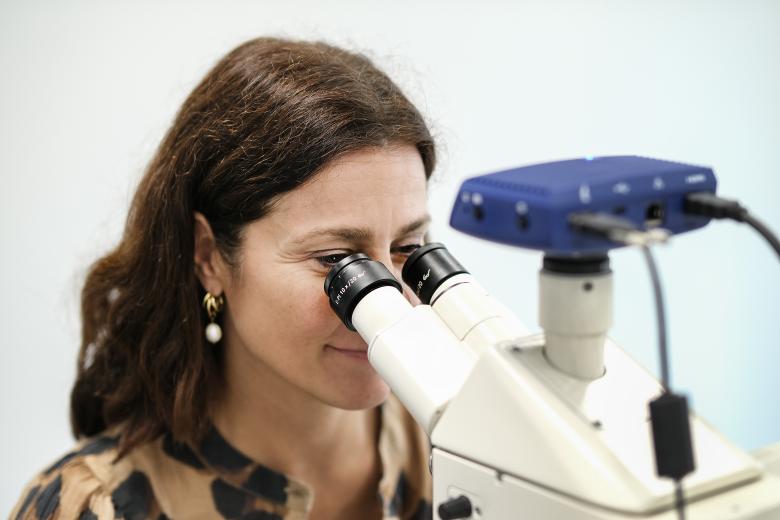Robert Langer, a role model for interdisciplinary science
Professor Robert Langer will be awarded an honorary doctorate by Maastricht University for his impressive career in academics and business. It is not the first crown on his work, and it will not be the last. Nonetheless, Langer is very proud to receive his doctorate. “I am deeply honoured. Society gets what it celebrates, so I hope this is a message to young people: you can do anything you want! Of course, it would be best if they decide to work in medical or chemical engineering – but I might be prejudiced, since this is my area of research.”
Setting the standard
A chemical engineer who discovers medical solutions, Robert Langer came to be known for what is now called convergence science: work across research topics. “From the start of my career onwards, I have always sought cooperation with other areas of expertise. Back in the seventies, this was not the way of doing things. I had to study and develop molecules and ways to deliver them to patients, to prove to the world that it was possible. After failing repeatedly, I found a way. Working together with many other scientists, we found a way of getting this technology to patients and created the field of tissue engineering. One of the scientists we collaborated with actually works at Maastricht University today – Professor Clemens van Blitterswijk.”
Robert Langer was not the only one conducting interdisciplinary research, but he did contribute to a new standard. “For my research area, it made sense to work together interdisciplinary. As a chemical engineer, I did not fully understand the issues the medical world was dealing with. Doctors helped me see what was needed to improve treatment. The same goes for our discoveries in tissue engineering. Working with a diverse group of experts, we developed treatments for cancer and other diseases.”
Bumpy beginnings
The list of awards and inventions by Robert Langer is too long to describe in detail. In summary: he received over 220 scientific awards, has written over 1,500 scientific articles and his patents are used by more than 400 pharmaceutical, chemical and biotechnological companies worldwide. But, although he is currently the most-cited engineer in history, he had anything but an easy start to his career. “I took a path very few chemical engineers have taken. After I finished my degree in chemical engineering, most of my classmates started working for oil companies – but I wanted to take a different route.” He wanted to put his engineering knowledge to better use, in the medical world.
Incredible discoveries
After dealing with many rejections, Robert Langer made an incredible impact with his discoveries. “I kept believing, and friends, family and my mentor Doctor Judah Folkman at Boston’s Children’s Hospital, were very supportive.” He got used to the initial scepticism. “With each of my discoveries, I had to prove its worth. So I did more experiments to prove sceptics wrong. Others repeated my experiments, which helped me prove my point. Discovering scientific breakthroughs and having the scientific community embrace them took many years.”
Looking back on his career, Robert Langer highlights what makes him proudest. “Firstly, the delivery systems in medicine that can deal with molecules. It enables the continuous, controlled release of drugs. Secondly, my work on tissue engineering with Jay Vacanti, that helps create new tissues in organs. Thirdly, all my students, who have gone on to do amazing things. And lastly, creating Moderna, the company discovering the incredible possibilities of messenger RNA therapeutics.”
Discovering scientific breakthroughs and having the scientific community embrace them took many years.
Prof. Robert S. Langer
Lessons from Langer
Robert Langer has some insights to share. “At the start of my career, I applied for research positions but failed to get a faculty job for two reasons. Firstly, the people reviewing my applications did not believe a chemical engineer could do it. Secondly, they did not believe my ideas were scientifically possible. I ended up working at the Children’s Hospital in Boston, where I discovered how I could use chemical engineering to contribute to the medical world. I want to motivate students and researchers not to give up. It might sound cheesy, but keep dreaming big dreams that can change the world and make it a better place. For professors, I would like to add that we should all feel very fortunate that we get to do what we do. It is a wonderful job. Finally, make sure you treat people well! There is a lot of satisfaction in seeing your students succeed.”
As one of the professors at the forefront of medical advances, his attention is spread across many different areas. “There are always pressing issues that deserve our attention. For example, I am working on self-boosting vaccines, to ensure you would never have to return for a new injection. Along similar lines, we are trying to create pills that last for an entire course of treatment, so you will not have to take a pill every day. I think both will become a reality in the future!” He adds that clinical trials determine how quickly a discovery becomes available. “The medical dogma is ‘first, do no harm’. So, we must progress carefully with new treatments, but covid-19 was a great example of how regulatory bodies can move much quicker in crises, due to the pressure to come up with a solution.”
Education for the future
The future of science lies in education, says Robert Langer. “The scepticism I faced can partly be resolved through better education, but we have to face the fact that not everyone will like what we do. That is what covid-19 demonstrated as well: even though the treatments and vaccines have well-established scientific roots, there was scepticism. Getting everyone to understand how medicine works would go a long way.”
Robert Langer’s positive outlook on practising science is reflected by what he believes to be the impact of his work. “It has been written by different awards committees that over two billion people were positively affected by our research. As a scientist, you do what you can. And you always try to do better. Receiving this honorary doctorate from Maastricht University is a wonderful appreciation of that work. Students and teachers should be proud to be part of such a distinguished university!”

About the 47th Dies Natalis
Maastricht University celebrates its 47th Dies Natalis on Friday, 27 January 2023. We look forward to inspiring speeches, award ceremonies and music at the St. Janskerk in Maastricht. The agenda for this joyous occasion includes a keynote lecture by Cyrus Mody, professor at our Faculty of Arts and Social Sciences. Rector Prof. dr. Pamela Habibović will award the Wynand Wijnen Education Prize, the Dissertation Prize and the Student Prizes. Prof. Robert S. Langer will be awarded the honorary doctorate.
Also read
-
SBE researchers involved in NWO research on the role of the pension sector in the sustainability transition
SBE professors Lisa Brüggen and Rob Bauer are part of a national, NWO-funded initiative exploring how Dutch pension funds can accelerate the transition to a sustainable society. The €750,000 project aims to align pension investments with participants’ sustainability preferences and practical legal...
-
Fresh air
Newly appointed professor Judith Sluimer (CARIM) talks about oxygen in heart functioning and the 'fresh air' the academic world needs.
-
Özge Gökdemir and Devrim Dumludağ reveal differences in competitive behaviour between women in the Netherlands
Economists and spouses Dr Özge Gökdemir and Professor Devrim Dumludağ conducted a study for Maastricht University that reveals differences in competitive behaviour between women in the Netherlands. Their findings will be published soon in a scholarly journal. Here, they give us a sneak peek.